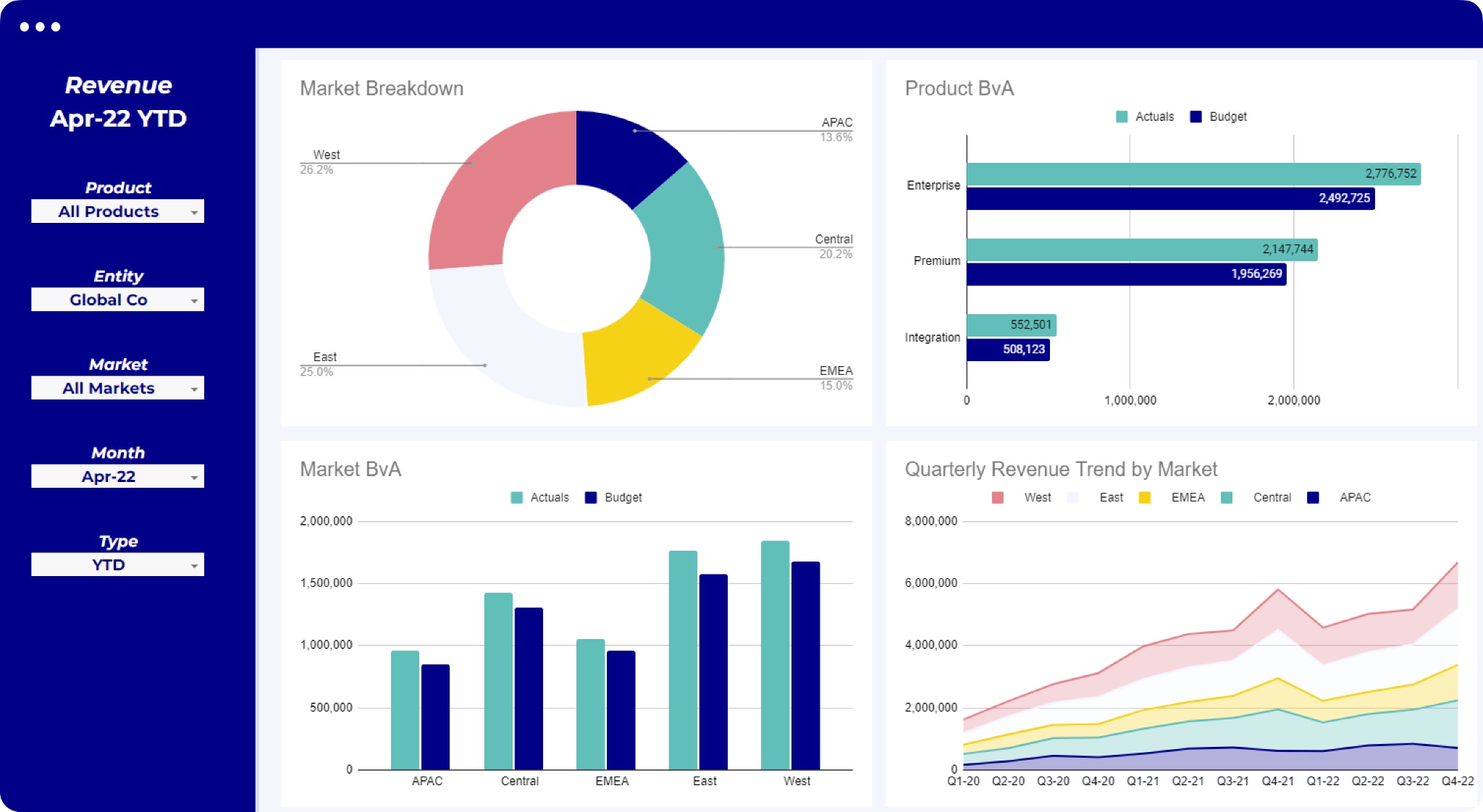Cube, a startup that wants to help companies “plan their financial future,” has raised $30 million in a Series B funding round led by Battery Ventures.
Existing backers Mayfield Fund, Bonfire Ventures and Operator Collective participated in the financing, along with new strategic investor GTMfund. The round brings the company’s total amount raised to $45 million since its 2018 inception. It declined to reveal its valuation.
Christina Ross, Cube’s CEO and co-founder, told TechCrunch she came up with the idea for the startup after working in CFO or head of finance roles at Eyeview, Criteo and Rent the Runway. Those experiences gave her insider insight into the challenges of conducting financial planning and analysis.
She describes Cube’s offering as FP&A (financial planning and analysis) software that pulls data from different systems and spreadsheets of a company’s system “so they can plan quickly — during times where speed is of the essence.”
And while Ross declined to reveal hard revenue figures, she said that ARR has grown five times — or 400% — in the past year, as the company has added new customers such as Acorns, Hinge Health, Masterworks, Truepill and Wealthfront.
Cube is sector agnostic and works with small startups to large publicly traded companies, Ross said. Demand for Cube’s software was high in 2021, according to Ross, when there was “limitless capital” available to companies. But it can be just as valuable during a downturn, she said.
“We view Cube as a shield during times that are less stable, like now, where suddenly this world of limitless capital has been replaced by terms like burn rate and runway and EBITDA,” Ross told TechCrunch. “Now it’s about going back to business fundamentals and teams are saying, we don’t just need a plan A. We need a plan B, a Plan C and a Plan D.”
Ross told TechCrunch that Cube focuses on helping finance teams “enhance the workflows they’ve become accustomed to.” By workflows, she is referring to spreadsheets. And it’s a narrative that runs counter to the flurry of startups we’ve seen as of late addressing the same problem with the aim of replacing spreadsheets.
That approach, in her view, is not realistic because so many finance teams are simply used to, and familiar with, Excel and Google Sheets. In fact, she describes Cube’s approach as “spreadsheet native.”

Image Credits: Cube
Trying to integrate systems that are designed to replace spreadsheets, Ross believes, can backfire because implementation can take so long and be so disruptive that it puts companies behind.
“Cube can help companies do with a button click what it would previously take days or weeks,” she said. “We can help them do more faster.”
It can also help companies pivot and run multiscenario plans “in time to adapt to foreseen market changes and plan for layoffs and headcount reductions,” she added.
“We can onboard customers so quickly, because we have the spreadsheet native approach. We can get companies live in days or weeks,” she said. “And nowadays, the difference between zero and six months is the difference between life and death, so companies can’t afford to take too long to solve these challenges.”
Battery Ventures general partner Michael Brown believes that FP&A software is a large market but that the majority of existing players offer “clunky” technology.
“Most FP&A software requires users to learn an entirely new system, all while maintaining existing spreadsheet models and forecasts,” he told TechCrunch. “Cube, on the other hand, empowers finance teams to keep working within their much-loved spreadsheets while leveraging the power of a data warehouse and powerful, automated software that helps them do their jobs better.”















 English (US) ·
English (US) ·